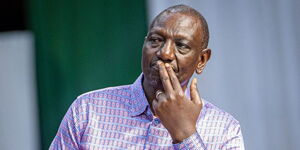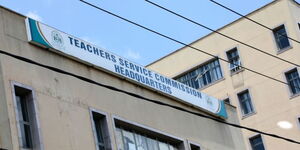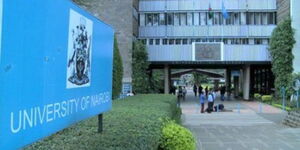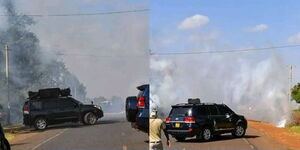A member of parliament from the Education and Health Committees has called for reform in the country's health training standards in colleges and universities.
The MPs made the calls on Tuesday, November 25, after a recent report by the Kenya Health Professionals Oversight Authority (KHPOA) lifted the lid on major gaps in some medical training institutions that could potentially undermine professionalism in the country's health sector.
According to the report, about 8 per cent of the 152 medical training institutions it surveyed during the 2024/2025 and 2025/2026 financial years were operating without the necessary registration and licensing documents despite admitting and offering medical courses to students.
The authority further claimed that some institutions operated without adequate faculty and also failed to offer clinical attachments to students, a situation that the authority noted poses a serious risk to public health and the students' experience in the field.
"Entry requirements for similar courses varied widely, with certificate courses ranging from 6–12 months and diploma courses lasting 24–36 months. Additionally, some colleges provided no clinical exposure at all, while others offered 0–24 months of practical training," said Jackson Kioko, CEO of KHPOA.
“Our assessment revealed that some institutions train without adequate faculty, without clinical attachments, and in some cases without even being registered. This is a risk to patient safety and the credibility of our health workforce,” he added.
Furthermore, committees revealed that the Association of Medical Training Institutions of Kenya (AMTI–K) had petitioned Parliament for the fair regulation of private medical colleges offering health-related courses.
In their petition, AMTI-K alleged discriminatory practices, arbitrary fees, and conflicting mandates among healthcare training regulators.
Responding to the calls, members of the committees asserted that ensuring the equal regulation of public and private medical training institutions will be the first step in harmonising medical training standards in the country.
“It has become clear that there are far too many bodies regulating health training, yet the quality of graduates is still uncertain. The fees charged to private institutions are prohibitive and inconsistent. We must harmonise training standards,” said Seme MP James Nyikal.
“The mandates of each regulator must be clarified in law. The Principal Acts need to be updated to align health training with national needs,” said Tinderet MP Julius Melly.
The increase in unregulated institutions is being catalysed by the high global demand for healthcare workers, which is undermining quality assurance, according to the oversight bodies.












